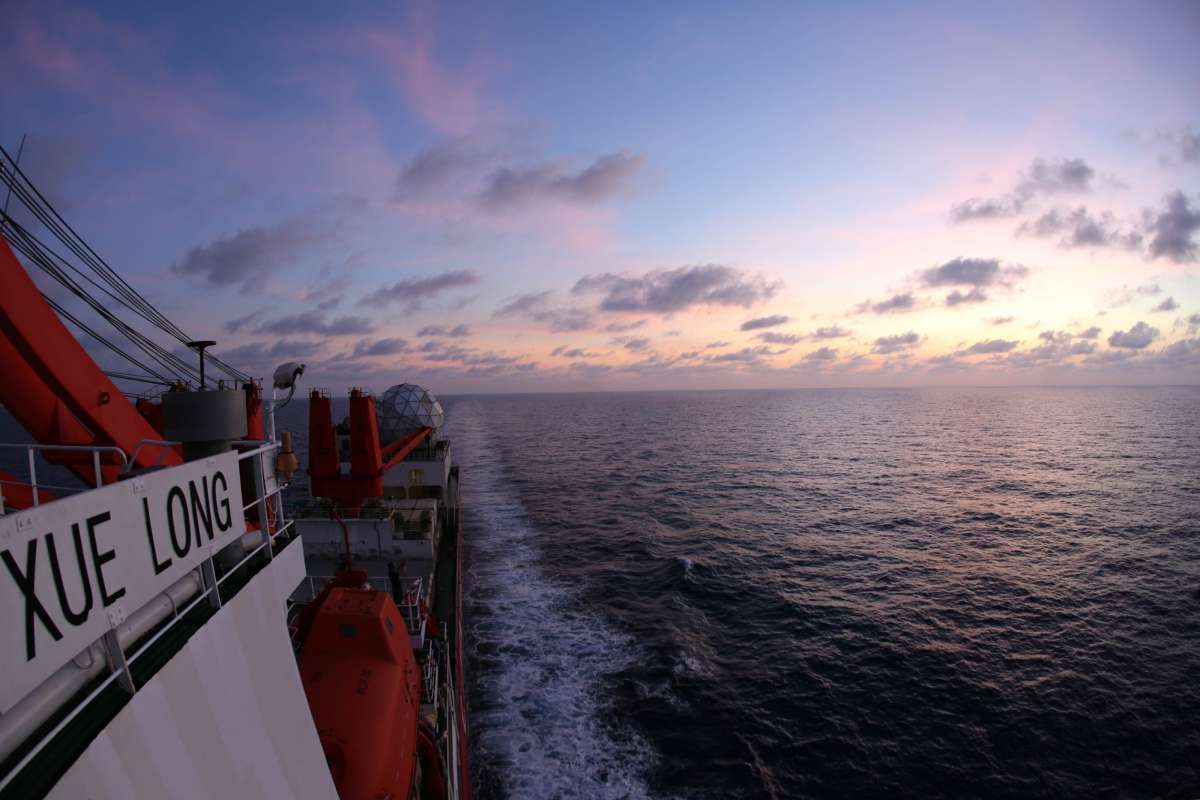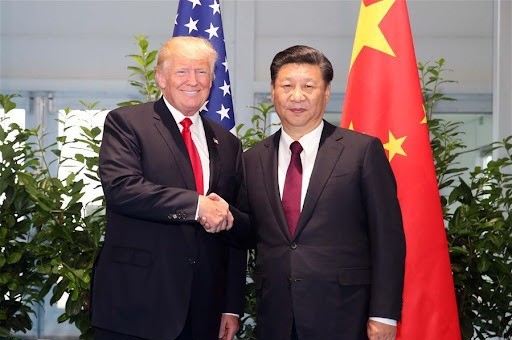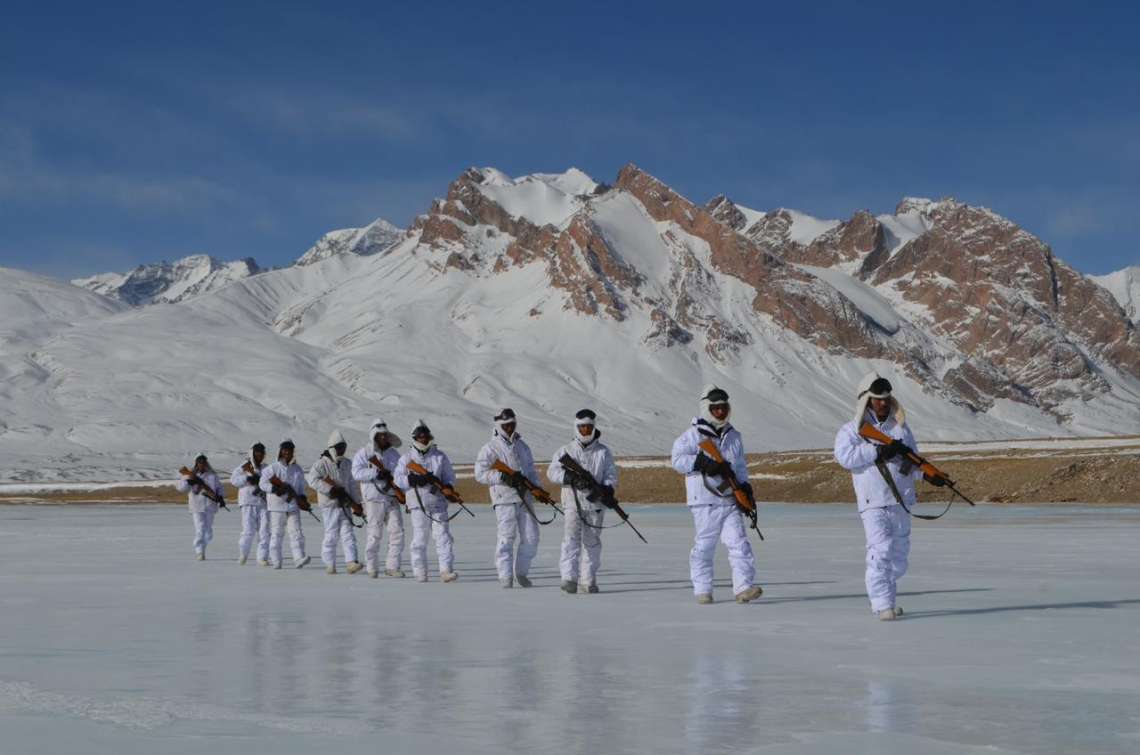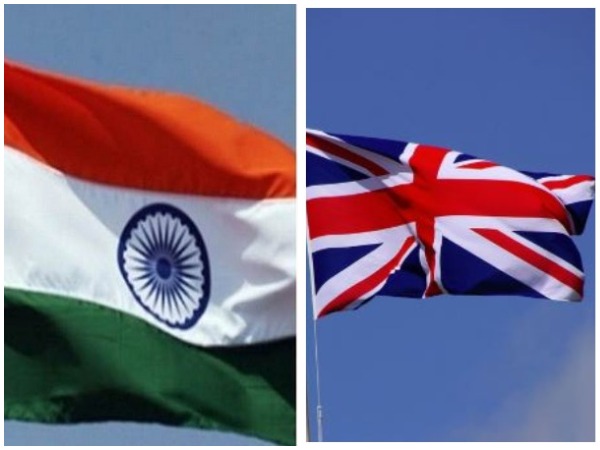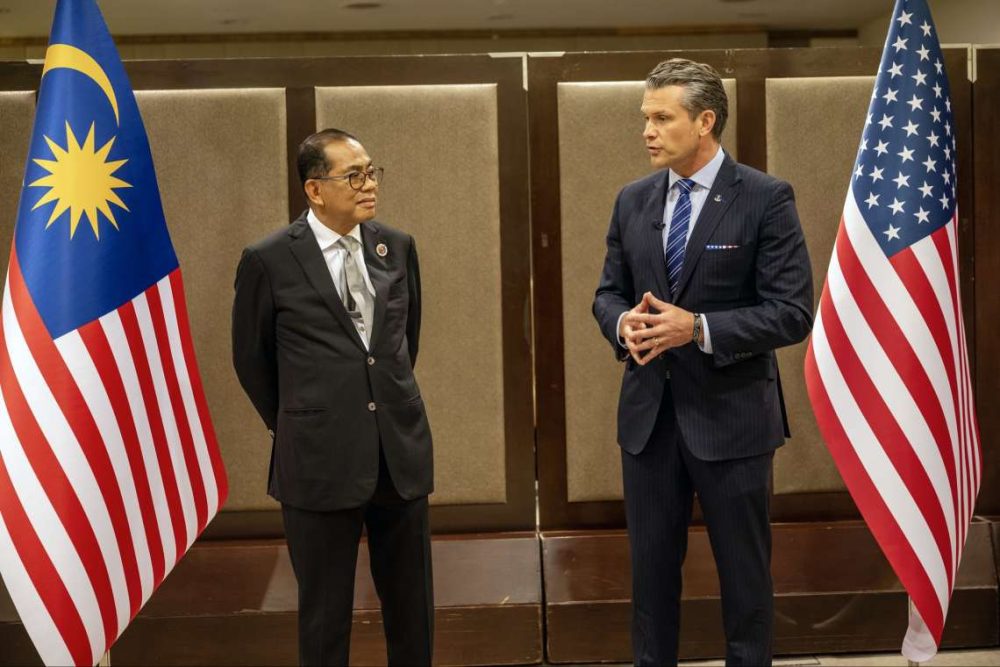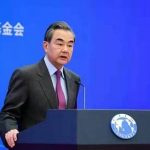Experts suggest that China’s provocative actions in the South China Sea are not only acts of aggression but also attempts to drag the US to the brink of war….reports Asian Lite News
Chinese coast guards engaged in a confrontation with Filipino sailors in waters controlled by the Philippines while these boats were transporting daily supplies to the Philippine military. According to visuals released by the Philippine military, the behaviour of the Chinese coast guards resembled that of non-state actors such as pirates rather than a state military.
The disturbing footage shows three Chinese boats aggressively attempting to overtake the Filipino vessel. During the ensuing scuffle, Chinese coast guards brandished knives and used strobe lights to obscure the cameras recording the aggression.

They rammed the Filipino boat, seizing and destroying essential supplies meant for the troops. One Filipino sailor lost his thumb in the attack.
These visuals are reminiscent of Chinese aggression in disputed territories, similar to the Galwan Valley clash during the peak of the Covid-19 pandemic, which resulted in the deaths of 20 Indian soldiers and 40 Chinese soldiers.
At the core of this dispute are China’s erratic claims over the South China Sea.
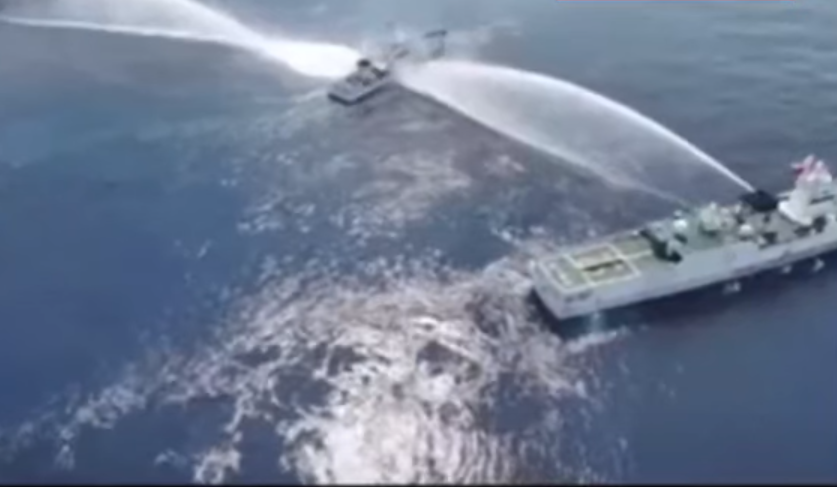
What is at the heart of the Dispute
The South China Sea, located between the Indian and Pacific Oceans, is a shared maritime area involving China, Japan, the Philippines, Vietnam, Malaysia, and other Southeast Asian nations. China arbitrarily claims the largest portion of this maritime space.
The South China Sea is globally significant, with around $3 trillion of international trade passing through it annually.
Additionally, it is rich in natural resources, including substantial oil and gas reserves.
As China ascended to economic power, it began asserting its erratic claims over territories already historically demarcated by other South-East Asian states.
In 2016, due to these contentious claims, the Philippines initiated an international arbitration action against China under the United Nations Convention on the Law of the Sea (UNCLOS).
The Permanent Court of Arbitration ruled in favour of the Philippines, finding no legal basis for China’s claims.
China, however, responded negatively to the arbitration ruling and refused to accept the binding decision. In response to China’s aggressive stance in the region, major Southeast Asian powers, including the ten ASEAN members, Japan, India, Australia, and the US, have attempted to establish mechanisms for a free and open Indo-Pacific, which China opposes.
The recent confrontation between the Philippines and China in the South China Sea is not an isolated incident.
To strengthen its claim, the Philippines positioned a World War II-era ship, the Sierra Madre, on the partially submerged Second Thomas Shoal in 1999, stationing marines on it.
Over the past 25 years, the Philippines has consistently supplied essentials to the ship.
In 2021, China typically deployed only one ship during these resupply missions, but by 2023, this number had increased to an average of 14 ships. In one operation in December of last year, researchers identified at least 46 Chinese ships monitoring the second Thomas Shoal.
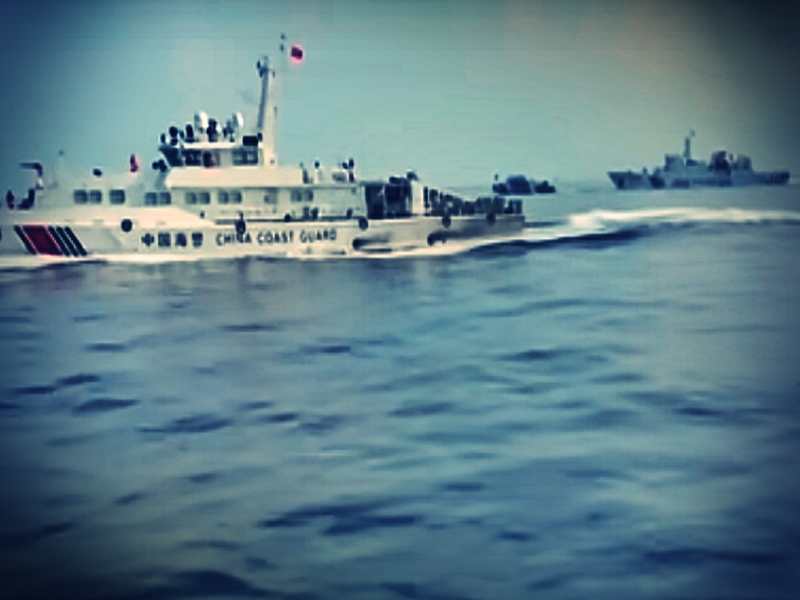
China continually provoking Philippines
The June 2024 incident is one of many aggressive acts by China in recent years, each escalating in provocation.
For instance, on April 30 this year, near the contentious Scarborough Shoal, Chinese coast guard ships fired water cannons at two Philippine patrol boats. Philippine officials indicated that water cannons could damage their ship engines or even capsize smaller vessels.
A similar incident occurred in March when Chinese coast guards fired water cannons near Philippine boats, injuring several crew members.
The Philippines has a longstanding security treaty with the US, one of the oldest such agreements between the US and its Asian allies.
This treaty stipulates that the US will assist the Philippines in the event of an attack or war-like situation. The Philippines has clarified that this protection extends to attacks on its coast guard.
Experts suggest that China’s provocative actions in the South China Sea are not only acts of aggression but also attempts to drag the US to the brink of war.
In his keynote speech at the Shangri-La Dialogue in Singapore this year, Philippine President Ferdinand “Bongbong” Marcos Jr. declared that any fatalities resulting from the ongoing standoff with Beijing in the South China Sea would be “very, very close to… an act of war”.
Responding to a question on US-Philippines mutual defense, he asserted that “we would have crossed the Rubicon” in such a scenario.
Conclusion
China has actively provoked nearly all of its neighbours, with the exception of Russia. Central to its aggression is the desire for hegemonic and authoritarian dominance in Asia.
China has consistently antagonised its neighbours, including India, Japan, Vietnam, and now the Philippines.
This pattern has intensified since Xi Jinping ascended to power. Experts describe this behaviour as ‘bluff brinkmanship’, where China’s grey zone military maneouvers, whether in the Galwan Valley or the South China Sea, have jeopardised regional security to assert its dominance.
Similar tactics were evident in the recent clash involving knives and fists between China and the Philippines.
Should a soldier use a lethal weapon next time, it could escalate into full-scale war.
Notably, post-pandemic, China’s economy is faltering, causing anxiety for Xi Jinping’s authoritarian regime, which may explain the surge in skirmishes over the past decade.
The international community must address China’s ongoing military escalation, while the threatened powers need to develop a collective strategy to counter its aggression.

‘Philippines won’t get intimidated’
Amid China’s growing aggression, Philippines’ President Ferdinand Marcos Jr has said that the nation would not be intimidated by Beijing’s expansionist acts.
His remarks came at the headquarters of Philippine South China Sea forces at Palawan island.
According to the Philippine President “In defending the nation, we stay true to our Filipino nature that we would like to settle all these issues peacefully.”
During the visit to the headquarters, Marcos awarded medals to 80 sailors who took part in the resupply mission, and urged the sailors to continue defending their nation despite the situation being “dangerous”.
Quoting Marcos as saying, Al Jazeera reported that the Philippines will continue to exercise its freedom.
“We will never be intimidated or oppressed by anyone. Continue to exercise our freedoms and rights in support of our national interest, in accordance with international law,” Marcos said.
The statement came as a response towards the recent incident of a violent clash between Chinese and Philippine sailors near the Second Thomas Shoal about 200 km away from Palawan island.
During that incident, the Chinese forces injured Filipino navy personnel and damaged at least two military boats in the South China Sea.
Additionally, the Filipino sailors also accused Chinese coastguards of stealing and damaging their equipment, the Al Jazeera report claimed.
Previously, the Philippines News Agency (PNA) had reported that the Armed Forces of the Philippines had rejected China’s allegation that a Philippines ship illegally entered its waters and collided with one of its coast guard vessels, terming it “deceptive and misleading of the China Coast Guard.
In a message to reporters, Armed Forces of the Philippines (AFP) public affairs office chief Col. Xerxes Trinidad stated, “The AFP will not discuss operational details on the legal humanitarian rotation and resupply mission at Ayungin Shoal, which is well within our EEZ (exclusive economic zone).” Trinidad added, “We will not dignify the deceptive and misleading claims of the China Coast Guard (CCG),” PNA reported.
The AFP official stressed that the presence and actions of Chinese vessels within the Philippines’ exclusive economic zone (EEZ) that infringe on Manila’s sovereignty and sovereign rights remain the main issue.
Trinidad said that the China Coast Guard’s continued aggressive actions escalated tensions in the region, according to PNA
The statement of the Armed Forces of the Philippines came after the China Coast Guard (CCG) claimed that a Philippine replenishment ship illegally entered waters near Ren’ai Reef (Chinese name of Ayungin Shoal) on Monday last week, forcing them to take appropriate actions.
Notably, Ayungin Shoal is a submerged reef in the Spratlys Islands in the South China Sea (SCS). The BRP Sierra Madre, which is considered an outpost of the Philippine Navy, has been grounded in Ayungin since 1999. (ANI)
ALSO READ:


